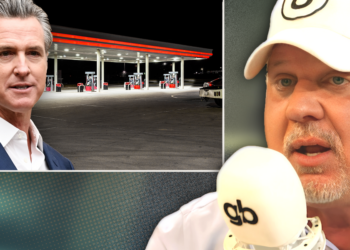If there’s one thing that Donald Trump does not like, it’s freeloaders, and that’s especially true when it comes to the members of NATO.
During his first term, Trump shook up NATO allies by blasting the majority of them for failing to meet their 2% of GDP spending commitment on security. Trump even floated the notion of the U.S. leaving the alliance.
Trump wasn’t wrong on the issue. NATO nations’ governments had grown complacent, taking advantage of being the friend of the world’s lone superpower, assuming that no matter what, the U.S. would have their back.
Rather than accept the truth of Trump’s criticism, the majority of NATO allies chose to express shock and resentment that he would dare to call them out. To them, Trump was the problem; he was the one upsetting the proverbial apple cart, and the sooner he was out of office, the better.
With Joe Biden taking office in 2021, Europe may have assumed that the “crazy” one was out and that the adults were now back in charge, and those defense spending commitments were never meant to be truly realized.
Then, in early 2022, Russia invaded Ukraine, and a feckless Biden, weakened by his disastrous exit from Afghanistan, did little to stop Vladimir Putin. Indeed, if it weren’t for the resolute determination of Volodymyr Zelensky and Ukrainians to stand firm and fight against the Russian war machine, NATO would be staring at a Russian army positioned directly across its borders.
Suddenly, NATO nations woke up to the problem, and the reason behind the original agreement to spend 2% of the GDP on national defense. It turns out Trump wasn’t crazy after all; indeed, one might describe him as prescient.
NATO Secretary General Mark Rutte admitted as much recently, telling alliance members, “It is simply unthinkable that Russia, with an economy 25 times smaller than NATO’s, should be able to outproduce and outgun us. Make your defenses so strong that no one dares to attack you.”
Trump is now president again, and this week he’s at a NATO summit in The Hague, Netherlands, fresh off his shellacking of Iran’s nuclear weapons program, while also successfully brokering a ceasefire between Israel and Iran. Needless to say, the reception Trump has received from NATO this time is significantly different.
Instead of European leaders shaking their heads and running to the nearest fainting couches in dismay over his “threat” to the alliance, they are celebrating his leadership. The 32 NATO nations have already agreed to Trump’s repeated demand that they increase spending on their national defense to 5% of their GDP. As Trump noted, “I’ve been asking them to go up to 5% for a number of years. I think that’s going to be very big news.”
The agreement states, “Allies commit to invest 5% of GDP annually on core defense requirements as well as defense- and security-related spending by 2035 to ensure our individual and collective obligations.”
Only one NATO ally has balked, and that is Spain, which claimed it cannot meet the target. That brought a stern rebuke from Trump, who warned, “You know what we’re gonna do? We’re negotiating with Spain on a trade deal. We’re going to make them pay twice as much. And I’m actually serious about that.”
The Deputy Prime Minister of Poland, one of the few NATO countries currently spending above the 2% GDP threshold on national defense, also blasted Spain, saying, “We believe that any deviation from this principle by any member country is a bad example.”
Meanwhile, Trump expressed his commitment to Article 5 of the alliance, namely that if any one of the NATO allies is attacked, all others will come to their collective defense. “We are with them all the way,” Trump said regarding the NATO allies. In the past, he has expressed doubt about the provision — as a negotiating tactic to encourage our allies to become worthy of defense.
So, far from Trump removing the U.S. from our most important strategic alliance, he has actually worked to strengthen it. He has utilized his leadership to encourage NATO nations to fulfill their commitments. He has demonstrated once again that the world led by strong U.S. leadership benefits our allies and helps to bring about greater stability and peace.
















